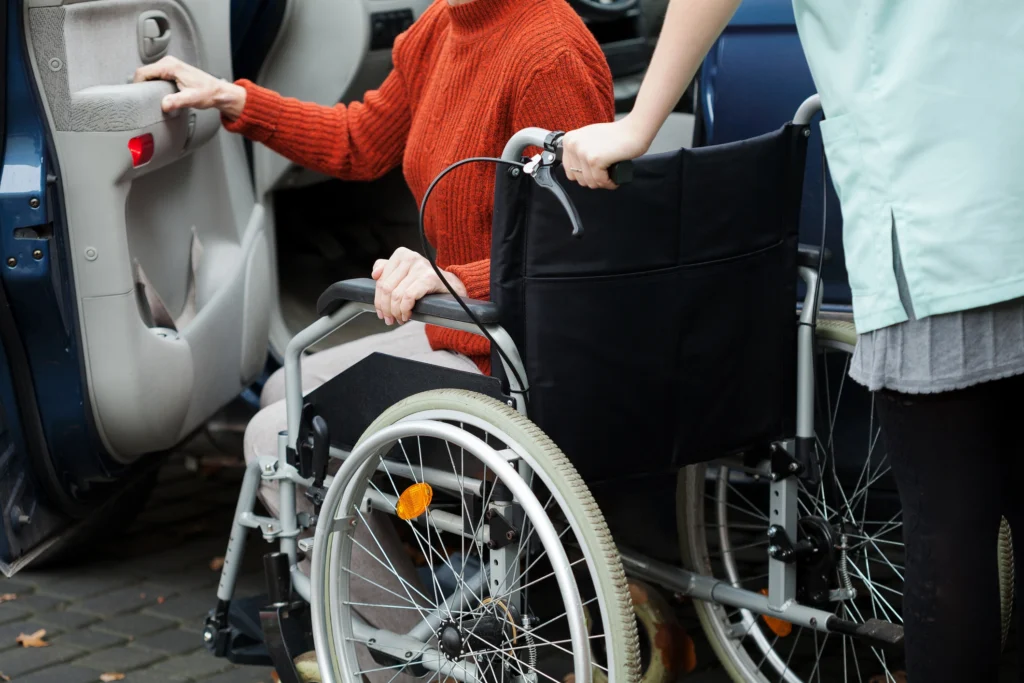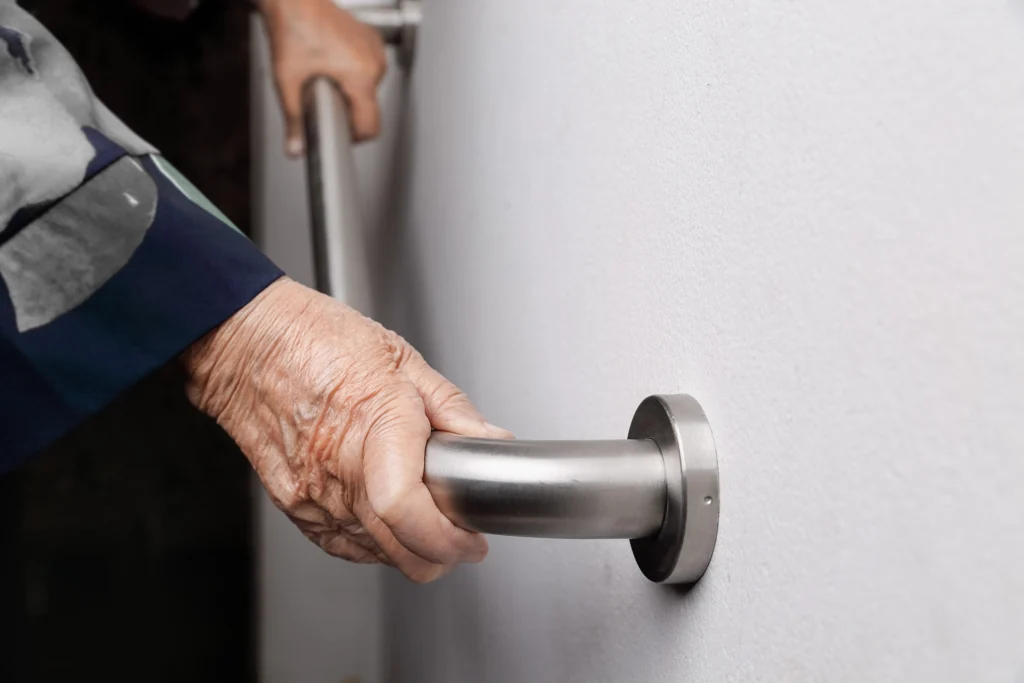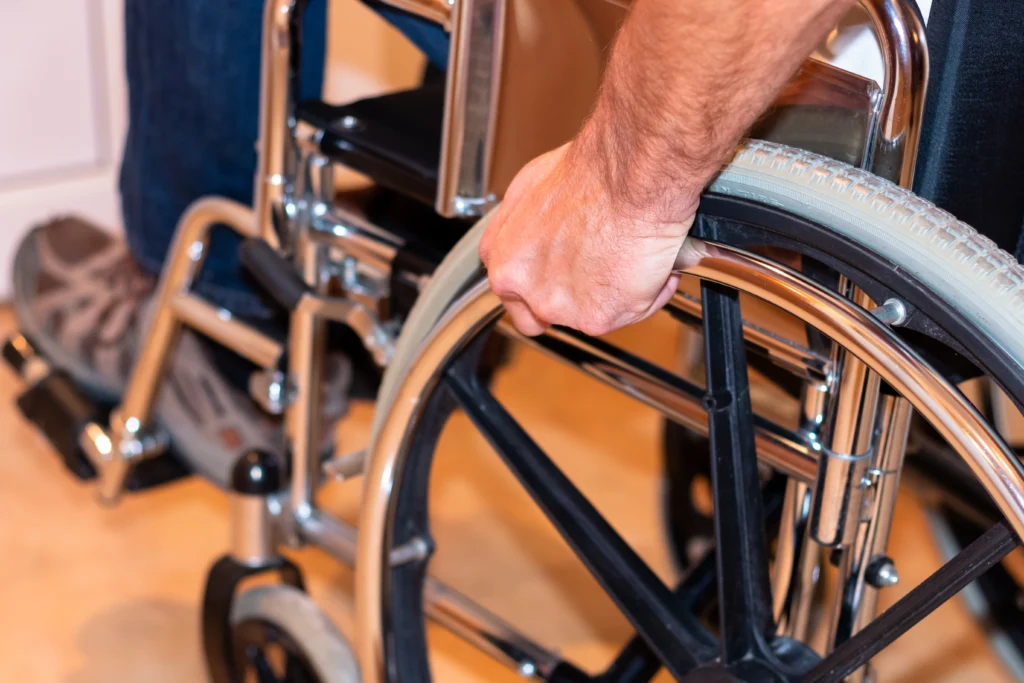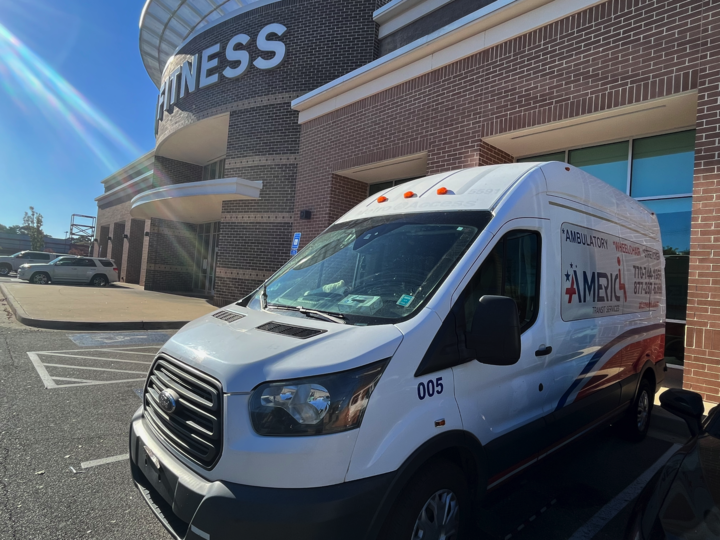A Critical Look at Services for Disabled Georgians: Advocacy and Empowerment for Accessibility

Diving deep into Georgia’s support system framework, we examine with a critical eye the extent to which services for disabled Georgians meet the necessary standards. Pressing past surface-level observations, this investigative exploration challenges the status quo, pushing towards advocacy and empowerment. Buckle up as we journey across an array of institutions, legislations, and real-life experiences, highlighting both triumphs and shortcomings while underlining important strides in driving accessibility forward. Be prepared: your perceptions might be about to change.
Individuals can apply for Disability Services in Georgia by contacting the appropriate state agencies or organizations that provide disability-related support. The application process typically involves submitting relevant documentation and information about the individual’s disability.
Disability Services in Georgia: Quality and Access
When it comes to disability services in Georgia, ensuring quality and accessibility is of utmost importance. The state recognizes the need to provide comprehensive support to individuals with disabilities, aiming to empower them and enhance their overall well-being.
Georgia offers a range of services for disabled residents, covering various aspects of their lives including education, healthcare, employment, transportation, and independent living. The goal is to enable individuals with disabilities to live fulfilling lives and participate fully in their communities.
For instance, the Georgia Department of Behavioral Health and Developmental Disabilities (DBHDD) plays a crucial role in providing resources and support to those with intellectual or developmental disabilities. This includes residential care options, independent living support for disabled adults, as well as specialized services for the deaf community.
Accessibility is a key aspect that ensures equal opportunities for individuals with disabilities. In Georgia, accessibility initiatives have been implemented in areas such as public buildings, transportation systems, parks, and recreational facilities. This allows individuals with various disabilities to navigate their environment more easily and participate in activities without barriers.
However, while significant progress has been made in improving disability services and accessibility in Georgia, challenges still exist. Some areas may lack appropriate infrastructure or accommodations for individuals with disabilities. Additionally, there may be gaps in awareness or understanding among service providers regarding the specific needs of different disabilities.
To address these challenges, continuous advocacy efforts are essential. Organizations like the Georgia Council on Developmental Disabilities (GCDD) strive to promote policies and practices that enhance the quality of life for people with developmental disabilities. These advocacy groups collaborate with government agencies, service providers, and community organizations to ensure that disability services are continuously improved and accessible for all.
Building upon the foundation of disability services in Georgia, let’s focus on an integral aspect: financial support and legal advocacy.
- In 2019, approximately 12% of Georgia’s population was recorded as having some form of disability, which underscores the need for robust disability services.
- The GVRA, as of its 2021 annual report, successfully aided 5,725 individuals with disabilities in gaining or retaining employment.
- Despite the presence of these services, a survey conducted in 2018 revealed that around 40% of adults with intellectual disability in Georgia were unable to access required support and healthcare services.
Financial Support and Legal Advocacy
Individuals with disabilities often face unique financial challenges that can impact their quality of life. Fortunately, Georgia offers a range of financial support programs to help alleviate these burdens and ensure a more inclusive society.
One such program is the Supplemental Security Income (SSI), a federal assistance program that provides monthly cash payments to disabled individuals with limited income and resources. SSI helps cover basic needs such as food, shelter, and clothing, providing a vital safety net for those who qualify.
Additionally, the state of Georgia provides Medicaid, a healthcare program offering comprehensive coverage to eligible residents with disabilities. Medicaid ensures access to necessary medical services, including doctor visits, hospital care, prescription medications, and specialized therapies. This program plays a crucial role in ensuring that individuals with disabilities receive the healthcare support they need without undue financial strain.
Legal advocacy is also essential for protecting the rights of individuals with disabilities in Georgia. Organizations like Disability Rights Georgia (DRG) work tirelessly to safeguard and advance the rights of people with disabilities through legal representation and advocacy efforts. DRG assists individuals in navigating complex legal issues related to disability rights, ensuring fair treatment and equal access to services and opportunities.
It’s important for individuals with disabilities or their caregivers to be aware of the various financial support options available in Georgia. Application processes may vary, and it is always recommended to seek guidance from experienced professionals or organizations specializing in disability services.
Employment Programs and Infrastructure
Access to meaningful employment is crucial for individuals with disabilities to achieve independence and financial stability. In Georgia, several programs and infrastructure are in place to support disabled Georgians in their pursuit of employment. One such program is the Vocational Rehabilitation (VR) division of the Georgia Vocational Rehabilitation Agency (GVRA). VR offers a range of services, including vocational counseling, skills training, job placement assistance, and assistive technology evaluation and provision. These services aim to empower individuals with disabilities by equipping them with the necessary tools to succeed in the workforce.
Let’s take Nick as an example. Nick is a young entrepreneur who runs his own lawn-care business despite having mobility challenges. With the support of VR services, Nick was able to access assistive technologies that enable him to drive and access his laptop computer and tablet efficiently. This assistance has not only expanded his business capabilities but also enhanced his overall quality of life.
Another valuable resource is the Business Enterprise Program (BEP), which falls under GVRA’s purview. The BEP supports blind or visually impaired individuals in establishing and operating food service businesses within state and federal locations. Through training, mentoring, and financial assistance, this program creates opportunities for disabled entrepreneurs to thrive in their chosen field.
Though these programs exist, it is essential to acknowledge that challenges still persist in achieving equal employment opportunities for disabled Georgians. Despite progress made in recent years, barriers such as attitudinal biases, lack of accessibility accommodations in workplaces, and discriminatory hiring practices continue to hinder equal participation in the workforce.
The importance of advocacy efforts cannot be overstated when it comes to creating an inclusive environment for disabled individuals seeking employment. Alongside government programs, organizations like the Job Accommodation Network (JAN) play a vital role in providing expert guidance on workplace accommodations and disability employment issues. JAN’s Workplace Accommodation Toolkit and Searchable Online Accommodation Resource (SOAR) equip businesses with the resources they need to recruit, hire, and retain employees with disabilities.
Now that we’ve explored some of the employment programs and infrastructure available in Georgia, let’s shift our focus to housing and community resources for disabled Georgians.

Housing and Community Resources for Disabled Georgians
Access to safe and affordable housing is a fundamental right for all individuals, including those with disabilities. In recognition of this, Georgia has established various housing and community resources tailored to meet the unique needs of disabled Georgians.
The Office of Supportive Housing in Georgia oversees programs such as the Georgia Housing Voucher Program (GHVP) and Bridge Funding. The GHVP is a state-funded permanent supportive housing program designed to help eligible individuals obtain safe and affordable housing while supporting their housing stability and integration into the community. Bridge Funding provides financial support to GHVP recipients for initial start-up expenses, ensuring a smooth transition into independent living.
Permanent supportive housing combines affordable housing assistance with voluntary support services to address the needs of chronically homeless individuals with disabilities. Studies have shown that this approach has not only decreased chronic homelessness but also increased housing stability and improved overall health outcomes.
Additionally, Projects for Assistance in Transition from Homelessness (PATH) teams play a crucial role in addressing the immediate needs of individuals currently experiencing homelessness with behavioral health needs. These teams conduct street outreach, provide case management services, and connect individuals to necessary resources to ensure their well-being and facilitate their journey toward stable housing.
Let’s meet Sarah. Sarah is a young woman who experienced homelessness due to her mental health challenges. With the support of PATH teams, she was able to access critical resources such as counseling, medication management, and connections to community programs that helped her secure stable housing. Sarah’s journey exemplifies how these housing and community resources are essential in providing a pathway toward independence and stability for disabled individuals.
As we have explored the available housing and community resources for disabled Georgians, it is crucial to also examine the availability of specialized resources that further enhance accessibility and inclusivity.
Specialized Resource Availability
Access to specialized resources is crucial for individuals with disabilities in Georgia. These resources can range from assistive devices and technologies to therapy services and accessible transportation options. The state of Georgia recognizes the importance of supporting individuals with disabilities and has established a comprehensive system of specialized resource availability.
To begin with, one of the key avenues for accessing specialized resources in Georgia is through the Division of Aging Services. This division offers various programs and services specifically designed for older adults and individuals with disabilities. These programs include home-delivered meals, personal care assistance, respite care, and assistive technology. Through these initiatives, individuals with disabilities can receive the support they need to enhance their independence and overall quality of life.
Let’s consider the case of Sarah, a young adult with mobility limitations living in Georgia. Through the Division of Aging Services, Sarah was able to acquire a motorized wheelchair that greatly improved her mobility and allowed her to participate more actively in her community. Additionally, she accessed physical therapy services offered by local disability organizations that helped her build strength and improve her overall well-being.
In addition to government initiatives, there are also various non-profit organizations in Georgia that provide specialized resources for people with disabilities. These organizations play a vital role in advocating for disability rights, providing information and referral services, and offering direct support.
Now that we have discussed the importance of specialized resource availability for individuals with disabilities in Georgia, let’s explore the role of non-government organizations (NGOs) in further enhancing accessibility and empowerment.

Role of Non-Government Organizations
NGOs hold a significant role in supporting individuals with disabilities in Georgia by focusing on advocacy, empowerment, and improving accessibility across various domains.
“NGOs act as a bridge between people with disabilities and the government,” says Laura, an advocate for disability rights. “They provide valuable services like legal aid, employment support, and educational advocacy, ensuring that people with disabilities have a voice and are included in decision-making processes.”
NGOs in Georgia often work collaboratively to address the diverse needs of the disability community. They organize workshops, training programs, and awareness campaigns to educate the public and create a more inclusive society. These initiatives aim to break down barriers and challenge societal attitudes towards disability.
Take, for instance, the NGO “Accessible Georgia.” This organization focuses on improving physical accessibility by consulting with businesses, organizations, and government entities to ensure compliance with accessibility standards. Through their efforts, they have successfully advocated for ramps, accessible restrooms, and other modifications that enable individuals with disabilities to fully participate in public spaces.
NGOs also play a crucial role in providing essential services such as counseling, job placement assistance, and independent living skills training. These services empower individuals with disabilities to achieve their goals, pursue meaningful employment opportunities, and live independently.
It is important to note that while NGOs make significant contributions to disability support services in Georgia, challenges remain. Funding limitations can restrict the scope of services provided by these organizations. Additionally, there might be gaps in service provision for certain specific disabilities or geographical regions within the state. Continuous efforts are required to address these issues and ensure equitable access to support across all communities.
Having explored the role and contributions of NGOs in supporting individuals with disabilities in Georgia, it is evident that these organizations bring about positive change and foster inclusivity.
NGOs and Disability Support Services in Georgia
In Georgia, several non-governmental organizations (NGOs) provide crucial support and services to individuals with disabilities. These NGOs play a vital role in advocating for accessibility, empowering disabled Georgians, and improving their quality of life. Let’s take a closer look at some prominent disability support services offered by these organizations.
One such organization is Parent to Parent of Georgia. They offer a variety of services to Georgia families impacted by disabilities or special healthcare needs. Their mission is to provide support to families and individuals from birth to 26 years old who are affected by disabilities or special health care needs[^notes]. Through their programs, they aim to connect parents with resources, provide training and mentoring, and facilitate support groups that foster community and mutual assistance.
Another notable organization is the Georgia Vocational Rehabilitation Agency (GVRA). They are currently conducting a Comprehensive Statewide Needs Assessment survey to gather information and identify areas where they can improve services for individuals with disabilities[^notes]. This agency focuses on empowering individuals with disabilities to achieve independence and employment. Through vocational rehabilitation programs, they offer job training, counseling, assistive technology, and other necessary services that enable disabled individuals to overcome barriers and enter the workforce.
Additionally, the Department of Community Health (DCH) in Georgia plays a significant role in providing disability support services. They have recently proposed amendments to the New Options Waiver (NOW) and the Comprehensive Supports (COMP) waiver[^notes]. These waivers aim to provide home- and community-based services for eligible individuals with disabilities. The proposed amendments seek to enhance access to services and improve overall program efficiency.
It’s important for individuals with disabilities and their families to stay informed about these various organizations and the services they offer. By staying connected through newsletters, websites, and social media platforms, families can receive timely updates on news and information related to education and healthcare services[^notes]. In turn, this enables them to make informed decisions and take advantage of the available resources.
The efforts of these NGOs and disability support services in Georgia are vital in advocating for accessibility, providing support, and empowering individuals with disabilities. Through their programs, they strive to create inclusive communities where disabled individuals can thrive.
In conclusion, NGOs play a significant role in providing disability support services in Georgia. Organizations such as Parent to Parent of Georgia, GVRA, and DCH work tirelessly to advocate for accessibility and empower disabled individuals. By seeking out these services and staying connected to diverse support networks, families impacted by disabilities can find the necessary resources, guidance, and community they need to navigate the challenges they face.
Yes, transportation services for individuals with disabilities are available in Georgia. These services may include Non-Emergency Medical Transportation (NEMT) and other specialized transport options to ensure accessible and safe travel.

Worry-Free Rides: Americ Transit Services Tailored Solutions for Diverse Mobility Needs
Welcome to Americ Transit Services a Non-Emergency Medical Transportation, your trusted partner in providing accessible and compassionate transportation solutions for individuals with diverse mobility needs! At Americ Transit Services, we understand the importance of reliable and inclusive transportation, and we’re committed to ensuring that every journey is a seamless and empowering experience for our passengers with disabilities.
Our fleet of specially equipped vehicles is designed to cater to a range of mobility challenges, offering a safe and comfortable mode of transportation for those who require extra care and assistance. From wheelchair-accessible vans to skilled and empathetic drivers, we go above and beyond to make transportation a positive and stress-free aspect of our passengers’ lives.
At Americ Transit Services, we believe in breaking barriers and fostering independence. Our team is not just here to drive; we are here to support, assist, and make every trip an opportunity for our passengers to engage fully with the world around them. From door-to-door pickups to personalized care plans, we tailor our services to meet the unique needs of each individual, ensuring that no one is left behind.
Choose Americ Transit Services for Disabled Transportation—where accessibility meets compassion. Contact us today to discover how we can transform your transportation experience into one that is inclusive, reliable, and empowering. Let’s embark on a journey towards greater mobility and freedom together!
Request a Ride today or call (770) 744-1959 to learn more and schedule your next ride!
Recent Comments